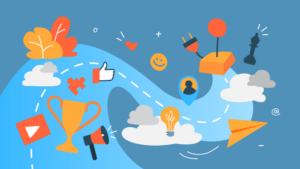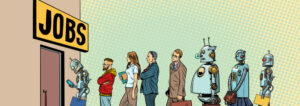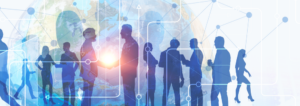Virtual Summit roundup: Ericsson on digital change in organizations
- 5 Min Read
Vidya Krishnan, Global Chief Learning Officer at Ericsson, details the impact that digital change is having on how professionals work, why leadership is evolving and how we’ll learn in the future.
- Author: HRD Connect
- Date published: Jan 22, 2021
- Categories

Despite the recent disruption to organizations and professionals, digital change continues to race ahead in today’s businesses. From augmented reality aiding warehouse workers to smartphones directing drivers and high-speed internet connecting global teams, it’s hard to think of tasks that haven’t been affected by digital change.
To that end, as the tools and processes evolve, so should the professionals using them; this ranges from their technical capabilities to their interpersonal skills, such as communication, management, and collaboration.
Vidya Krishnan, Global Chief Learning Officer of Ericsson, appeared at our Virtual Summit in November to expand on these very topics, commenting on how digital change will continue to influence how we learn, interrelate, lead and much more. To discover top insights from top HR influencers worldwide, make sure you sign up for our February event today.
Vidya, your presentation highlighted 5g as a massive force for digital change; what are the implications that leaders should acknowledge?
Like so many digital technologies, 5G is going to transform industries. And when you transform industries, you have to transform skillsets. Digital transformation is at the heart of skills transformation, so we believe that it’s going to change and disrupt the world that we’re living in, in a way that requires us to reskill like never before. We also believe if we do it right, it’s going to give our industry new tools and new capabilities for how we play a role in reskilling our people.
It’s changing both the need, and it’s changing how we meet that need. This is a very important moment, one that’s been made even more intense by the pandemic, by what we see in the world with climate change, racial injustice, and economic disparities.
How should leaders encourage different groups to interact in changing workplaces?
We will see a new level of multi-generational diversity and we have to look very closely at what it means. We’ve talked so often about what the youngest generation wants, in terms of being digital natives and wanting social purpose, justice and flexibility.
I often think everybody wants that. We also have to recognize what makes us unique, as well as what binds us together, and how we’ve got to use our relationship with technology to design ecosystems, culture systems and companies, power our business systems, make sure that we’re driving both profitability and purpose.
Due to digital change and recent factors, like the pandemic, how are we seeing the nature of leadership changing?
I think the biggest change is there’s a redefinition of what good leadership is. There are some things that are fundamentally timeless when it comes to leadership – caring for others, leading people in a direction that brings benefit and prosperity – but I think the definition of leadership has evolved significantly.
In many cases, teams are looking more to their employer for wellness, health guidance, protocol and rules about taking care during the pandemic. In that sense, they’re looking to them more than ever for protection. In a situation like this pandemic where you don’t have people going to the office, leadership that becomes more virtual (but also more human) becomes a differentiating factor in making sure that people are able to get through in a way that doesn’t cause them to burn out.
I also think that leadership used to be so much about expertise and knowledge. Now it is about embracing the vulnerability of not knowing, demonstrating leadership as continual learning, and being the person who drives learning in the team.
So L&D is becoming a core leadership principle?
We can’t afford to not reinvent ourselves, we can’t afford to be stagnant in our skills. Wholehearted, authentic leadership used to be considered nice to have but is now considered the new default – anything less will not get the job done. Now you need to align your ecosystems to make that leadership capable of reaching people with great speed. You need to evolve your culture systems so that they advocate and don’t tolerate anything less than this.
They help people to be mobile and develop through experiences, and finding one another, and finding a community, and teaching one another, and being valued, not just for what you consume and learn, but for what you contribute. L&D stops being a support function, instead it’s a driving function. Our mission is to drive the business forward and I think we have to fully embrace what it takes to do that role really well. Reskilling and upskilling are what happen to you on the way to solving business problems that matter.
The key lesson is that we are at an inflection point. In terms of technology, in terms of societal forces, and definitely in terms of the definition of leadership. That inflection point demands that we learn our way to a better future. Therefore, we have got to prioritize zero tolerance for zero learning, and learning as a key to creating the conditions in which our people, our customers and society can continually reinvent themselves and do that in a way that brings value, not just for the company, but for themselves.









